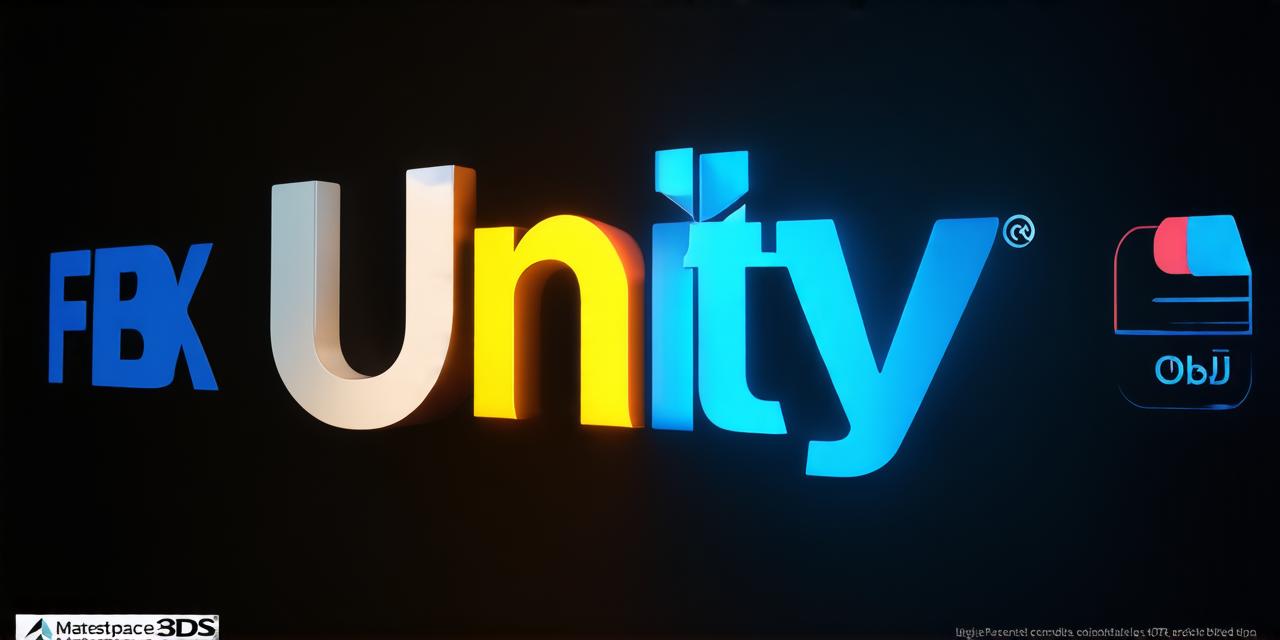When it comes to using 3D models in Unity, it’s important to ensure that the file format you are working with is compatible with Unity. This will help prevent issues such as slow loading times, crashes, and other problems that can arise when using an unsupported file format. In this article, we will explore some of the most commonly used 3D file formats that are compatible with Unity.
1. FBX
FBX (File Binary Exchange) is a widely-used 3D file format that is compatible with many 3D modeling software programs, including Autodesk’s 3ds Max and Maya. FBX files can be exported from these programs directly into Unity, where they can be used as assets in your projects.
2. OBJ
OBJ (Object Browser Exchange) is another popular 3D file format that is compatible with many 3D modeling software programs. OBJ files can also be exported directly from these programs and imported into Unity, where they can be used as assets in your projects.
3. COLLADA
COLLADA (COmmon Language Architecture Data) is a platform-independent 3D file format that is designed to facilitate the exchange of 3D data between different software applications. COLLADA files can be exported from many 3D modeling software programs and imported into Unity, where they can be used as assets in your projects.
4. DAE
DAE (Designer Archives Exchange) is a file format that is specifically designed for the exchange of 3D models between different design software applications. DAE files are similar to COLLADA files and can also be exported from many 3D modeling software programs and imported into Unity, where they can be used as assets in your projects.
5. 3DS
3DS is a file format that was developed by Autodesk for their 3ds Max 3D modeling software. 3DS files can be exported directly from 3ds Max and imported into Unity, where they can be used as assets in your projects. However, it’s important to note that 3DS files may not be compatible with all versions of Unity, so it’s always a good idea to check the file format compatibility before importing them into your project.
In conclusion, when working with 3D models in Unity, it’s important to use file formats that are compatible with Unity. Some of the most commonly used compatible file formats include FBX, OBJ, COLLADA, DAE, and 3DS. By using these file formats, you can ensure that your 3D models will load smoothly and work properly in Unity.
